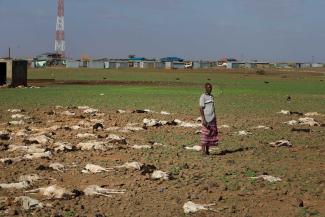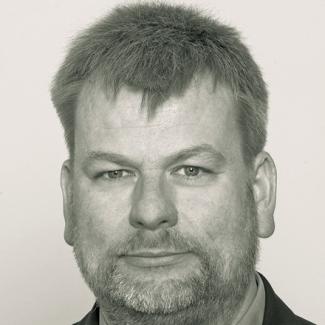Informal sector
Social protection for everyone

Covid-19 has set humankind back years in its attempt to eradicate extreme poverty and reduce inequality. Even before the pandemic, it was unlikely that these goals would be achieved by the end of this decade, as envisaged in the Sustainalbe Development Goals (SDGs). For it yet to happen, global growth must now accelerate very sharply, and all national governments must invest massively in redistributive social-protection programmes.
A substantial share of the world population still lives below the poverty line. This share has recently increased again. An even larger share of people, however, are transitory poor who live slightly above the poverty line at times, but repeatedly fall below it because of shocks such as illness, accident or unemployment. These shocks cause the collapse of incomes and/or high and unexpected expenses.
To cope with such shocks, people affected cut back on consumption, sell land or machinery, send children to earn money and/or accept unhealthy jobs themselves. Either way, there are serious impacts on their ability to earn money in the future. Even those who manage to lift themselves out of extreme poverty are thus permanently in danger of slipping back into it.
Protection against everyday risks
Social-protection systems prevent hardships of this kind kind (see Markus Kaltenborn and Laura Kreft on www.dandc.eu). They provide financial support to people hit by shocks, shielding them against extreme poverty, even if they are no longer able to work or face large health-care bills. Social-protection programmes can be run by the state, commercial companies or self-help groups. Governmental programmes however benefit from the fact that they can make membership compulsory, facilitating redistribution from richer to poorer members. Public schemes are often financed with contributions. Typically, governments charge a fixed rate of a persons’ income for this purpose. In the USA these compulsory contributions are aptly called “payroll taxes”.
To a considerable extent, those who earn much thus help to finance the health protection of those with low incomes. However, public social-protection schemes can also be financed fully or partly from the general government budget. In contrast to commercial insurances, they can thus also protect households with very low incomes who would not be able to pay any contributions.
Nonetheless, masses of people in low- and middle-income countries still lack adequate social protection. Almost all countries have public social-protection schemes that are financed by members' contributions (payroll taxes), but these schemes are mostly tailored to the needs and incomes of people in formal employment. Informal workers, who have no employment contract or are self-employed, are not registered anywhere, so no one pays their contributions (payroll taxes). Their incomes tend to be too low and too volatile for paying regular contributions themselves.
In middle-income countries, informal workers account for 30 % to 60 % of the labour force; while in low-income countries, the share can be as high as 90 %. Hence, more than half of the world population is not protected against the effects of unemployment. In sub-Saharan Africa, the respective rate is a staggering 95 % (see World Social Protection Report 2020-22). Some countries have made attempts to extend the government-funded coverage of health protection schemes to informal sector workers (see box).
At the same time, almost all countries also run social assistance and employment programmes. They are financed by the government budget and intended to support low-income households. Due to budget constraints, however, these programmes tend to benefit only a small number of people. In most countries, unfortunately, the percentage of beneficiaries is almost as high among the better-off as it is among the poorest. The main reason is that governments lack reliable data on households’ income and wealth. As a result, getting public support in situations of need is all too often like winning a lottery.
SDGs at risk
The Sustainable Development Goals (SDGs) will not be achieved unless informal workers get better access to social protection. In most countries, this will require universal, state-funded programmes, in particular:
- public health systems or social health insurance schemes with heavily subsidised contributions,
- basic social-pension programmes for people above 65 and those who are unable to work,
- universal child benefits and
- public works schemes (cash-for-work programmes).
Since 2012, the ILO and the World Health Organization (WHO) have been recommending a “Basic Social Protection Floor”, which comprises these four elements. Countries that still have not introduced such a floor, should do so fast – and supporting such efforts should be high on the agenda of the international donor community.
Link
ILO, 2021: World Social Protection Report 2020-2022
https://www.ilo.org/wcmsp5/groups/public/---dgreports/---dcomm/---publ/documents/publication/wcms_817572.pdf
Markus Loewe is senior researcher at the German Development Institute (Deutsches Institut für Entwicklungspolitik – DIE) in Bonn.
markus.loewe@die-gdi.de













